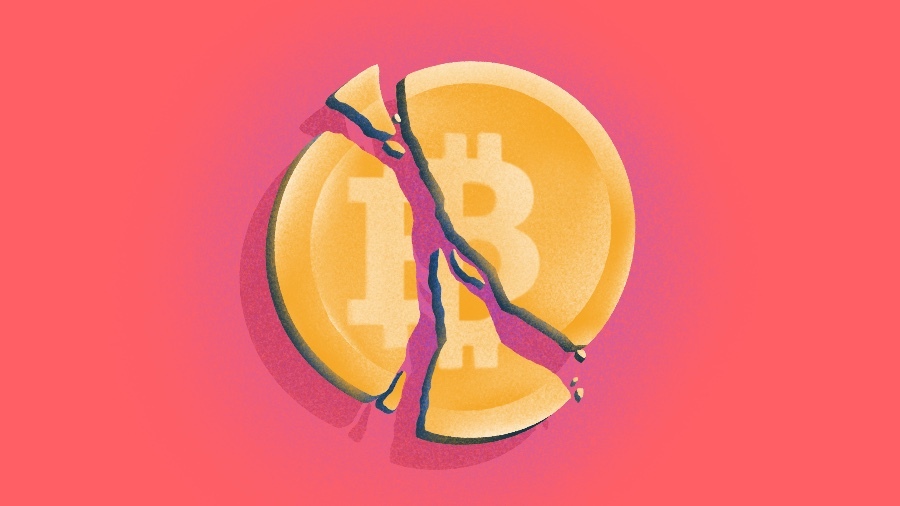As crypto prices plummet, some withdrawals are halted, and FTX scrambles for new investment after its astonishing fall, it seems fair to wonder what will happen to venture investment in the sector.
Search less. Close more.
Grow your revenue with all-in-one prospecting solutions powered by the leader in private-company data.
FTX’s debacle already has left its venture investors dumbfounded, with VC titan Sequoia Capital reportedly telling its LPs it has marked down the value of its stake in FTX to zero after investing more than $210 million in the exchange.
The crypto venture market has already cooled significantly from 2021 — like most other venture markets. Last year saw a record $23.3 billion invested in VC-backed crypto startups, according to Crunchbase data. Thus far this year, just slightly more than half that number — $12.8 billion — has been invested in similar startups.
That cooling may continue as investors start to ask questions they should have been asking all along.
“There’s a fine line between betting on the future — even when it means investing in concepts that, at least today, don’t entirely add up — and just throwing money at a concept because everyone else is doing it,” said Bradley Tusk, co-founder and managing partner at Tusk Venture Partners, which invests in the crypto industry.
Tusk said while crypto is a useful asset class for people who distrust central banks, that doesn’t justify all of the money raised and invested in the sector.
“This may be what forces VCs to start using common sense again — although that’s the byproduct of every downturn and it always dissipates the minute easy money arrives,” he added.
What happened?
While it can be argued FTX’s problems began years ago, the issues boiled over starting Nov. 6 when Binance CEO Changpeng Zhao tweeted that Binance — the largest exchange by volume — would sell its holdings of FTX’s native token, FTT. Zhao said the decision was due to “recent revelations that have came to light” about the token.
Earlier this month, reports came out that Sam Bankman-Fried’s trading firm Alameda Research had a large portion of FTT on its balance sheet, possibly helping prop up its value.
FTT prices dropped like a rock amid the controversy and FTX was thrown into disarray as withdrawals mounted.
Binance seemed to emerge as FTX’s white knight when Zhao tweeted the news his company would acquire FTX, but that deal quickly fell apart.
Early Thursday, Bankman-Fried tweeted out the obvious as it was reported he would wind down his Alameda trading platform and was seeking investors for emergency funding to FTX as it faces a $8 billion shortfall.
What now for venture?
The collapse is stunning when considering earlier this year FTX raised $400 million at a $32 billion valuation. According to Crunchbase, FTX has raised nearly $2 billion total. Investors in FTX include the likes of the SoftBank Vision Fund, Singapore’s Temasek Holdings, Paradigm and Lightspeed Venture Partners.
Despite the collapse and the ongoing “crypto winter” — which has seen crypto prices fall substantially off their highs last November — venture investors say while some faith may have been shaken in the market, they are not changing their long-term strategies.
“I do think that there will be an effect on investment in the crypto space for sure,” said crypto investor Jai Das, partner, president and co-founder at Sapphire Ventures. “I believe the investments will shift more toward the building of the next-generation computing platform — aka Web3 — which is blockchain based and is more distributed and secure.”
Crypto-based centralized finance companies — like FTX — that offer crypto in a form more similar to traditional financial-services products, Das said, will have a harder time raising financings, as opposed to DeFi-based financial services, which will still get funded since they have not been affected by the FTX meltdown.
“The valuations of many of these startups will come down, but I believe the smart crypto and blockchain investors will keep funding the best and brightest crypto founders,” he added.
A good thing?
Adam Struck, founder of LA-based venture firm Struck Capital and Struck Crypto, a $115 million crypto fund, said he is hoping the bearish sentiment in the market continues and removes the frothiness that has plagued the space. This could set the stage for the increased consumer protections necessary for cryptocurrency — and specifically DeFi — to fully hit its potential.
“While the FTX collapse is sure to send shockwaves throughout the totality of the ecosystem and will set the stage for continued bearish sentiment — a cooling off of sorts — we are not changing our strategy,” Struck said.
“The FTX debacle might be the major catalyst that sets the stage for DeFi to truly hit escape velocity,” said Struck, adding it may give consumers greater control of their assets.
“So in that sense we take a long-term approach; this equates to necessary growing pains in a nascent space and we remain focused on backing crypto native technologists that are building for the right reasons,” Struck said.
Illustration: Dom Guzman

Stay up to date with recent funding rounds, acquisitions, and more with the Crunchbase Daily.








67.1K Followers